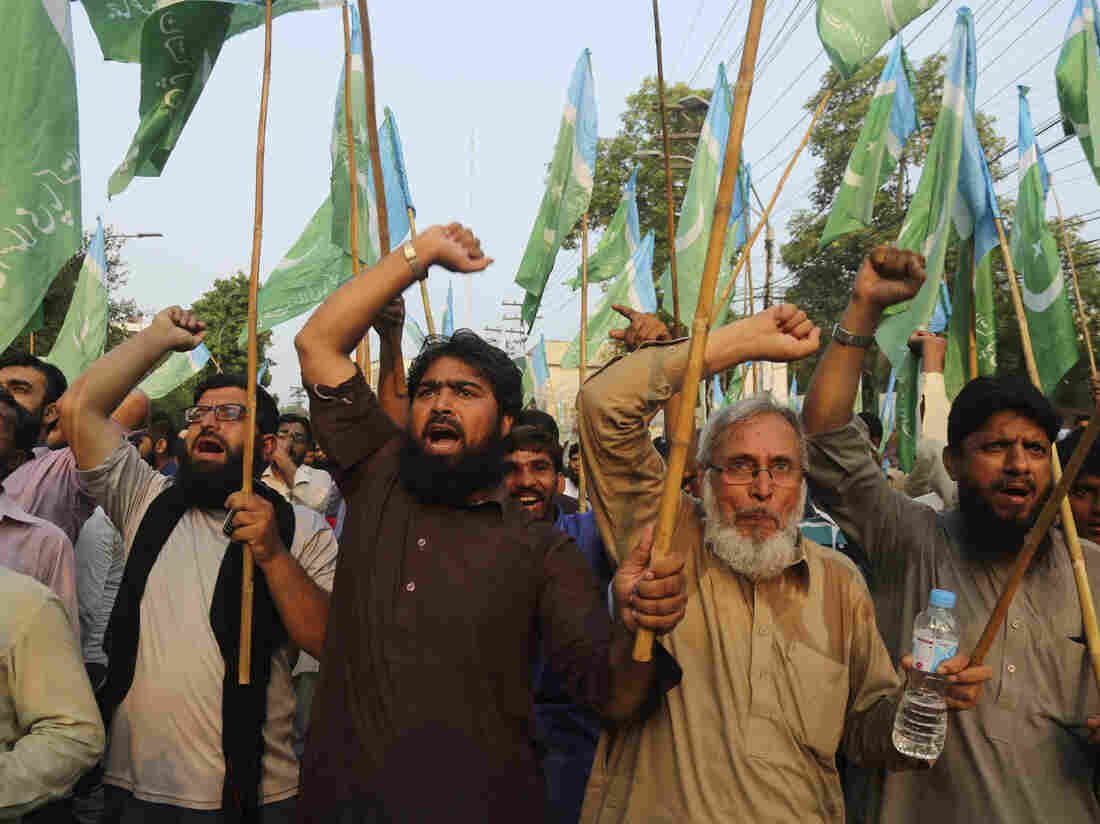The row between India and Pakistan over the disputed territory of Kashmir has deepened with Pakistan's announcement that it was expelling India's top diplomat and suspending trade.
Indian-administered Kashmir has been on lockdown since the Indian government decided on Monday to strip the region of its special constitutional status.
Phone networks and the internet have been cut off since Sunday evening.
Tens of thousands of troops have been patrolling the streets.
Instances of protest and stone-throwing have been reported, despite the communications blackout and a curfew.
Kashmiris in other parts of the country said that they were unable to get through to their families. Local leaders have also been detained.
Why is Kashmir so contentious?
The Himalayan region of Kashmir is claimed in its entirety by both India and Pakistan, but they each control only parts of it.
There is a long-running separatist insurgency on the Indian side, which has led to thousands of deaths over three decades. India accuses Pakistan of supporting insurgents but its neighbour denies this, saying it only gives moral and diplomatic support to Kashmiris who want self-determination.

Media playback is unsupported on your device
Under Article 370 of the Indian constitution, the state of Jammu and Kashmir had special dispensation to make its own laws - the basis for its complex relationship with India for some 70 years.
However, the Indian government is now revoking most of Article 370.
What is Pakistan doing?
Pakistan is suspending all trade between the two countries.
It also recalling its high commissioner (the equivalent of an ambassador) from the Indian capital Delhi and expelling his Indian counterpart from Islamabad.
Prime Minister Imran Khan has "directed that all diplomatic channels be activated to expose brutal Indian racist regime, design and human rights violations", a Pakistani government statement said.
He also directed the armed forces to remain vigilant.
In addition, Pakistan is asking the UN Security Council to consider the dispute.
Neighbouring China has also voiced opposition to the Indian move, describing it as "unacceptable".
How serious is this?
India and Pakistan - who both possess nuclear weapons - have fought two wars over Kashmir since independence from British colonial rule in 1947.
Many people in Indian-administered Kashmir do not want it to be governed by India, preferring instead either independence or union with Pakistan.
The population of the Indian-administered state of Jammu and Kashmir is more than 60% Muslim, making it the only state within India where Muslims are in the majority.
While the current insurgency began in 1989, violence surged again in 2016, with the death of a young militant leader, Burhan Wani. Last year, more than 500 people were killed - including civilians, security forces and militants - the highest such toll in a decade.
Prime Minister Narendra Modi and his Hindu nationalist Bharatiya Janata Party have for a long time wanted to scrap Article 370 - a promise included in their manifesto for elections earlier this year.
They argued that Kashmir needed to be put on the same footing as the rest of India.
Once returned to power with an increased majority in May, the government lost no time in acting on its pledge.
https://www.bbc.com/news/world-asia-49267912
2019-08-07 13:42:17Z
52780345910875







